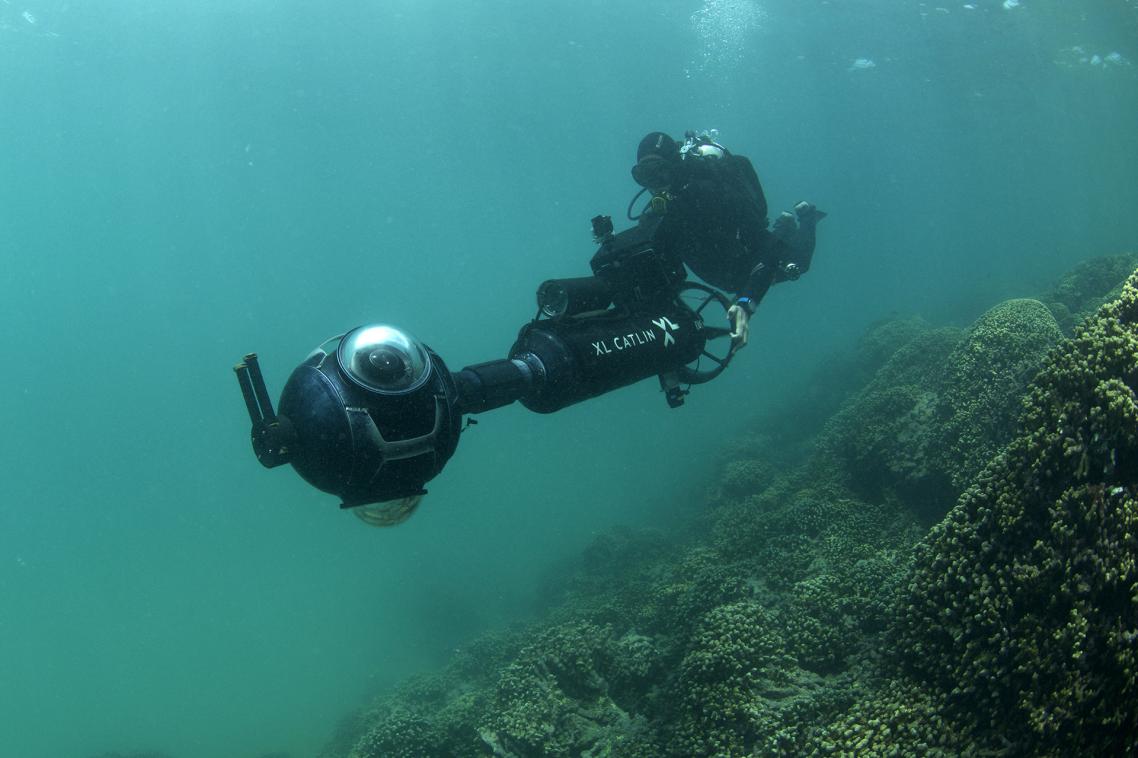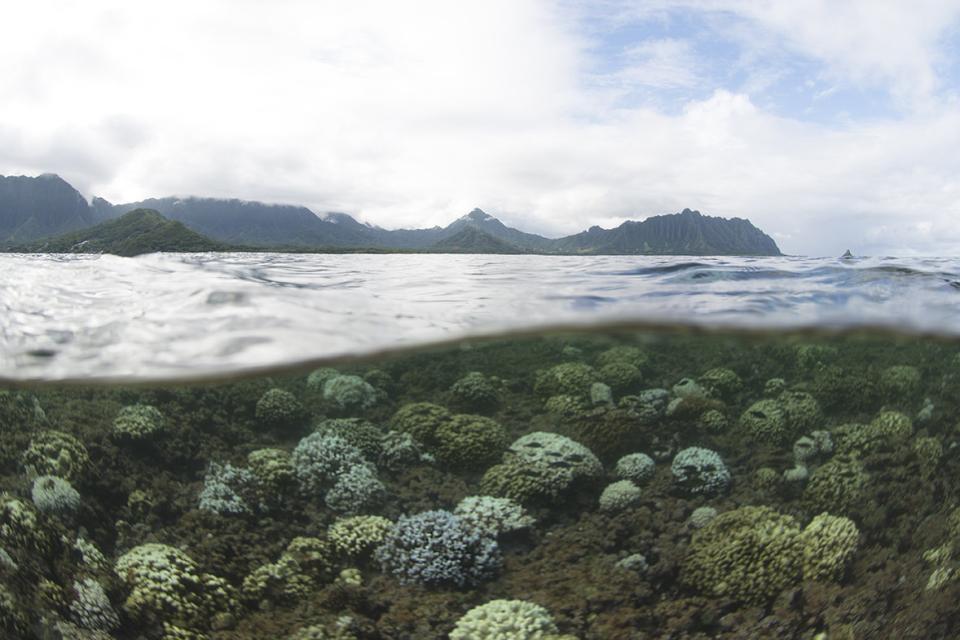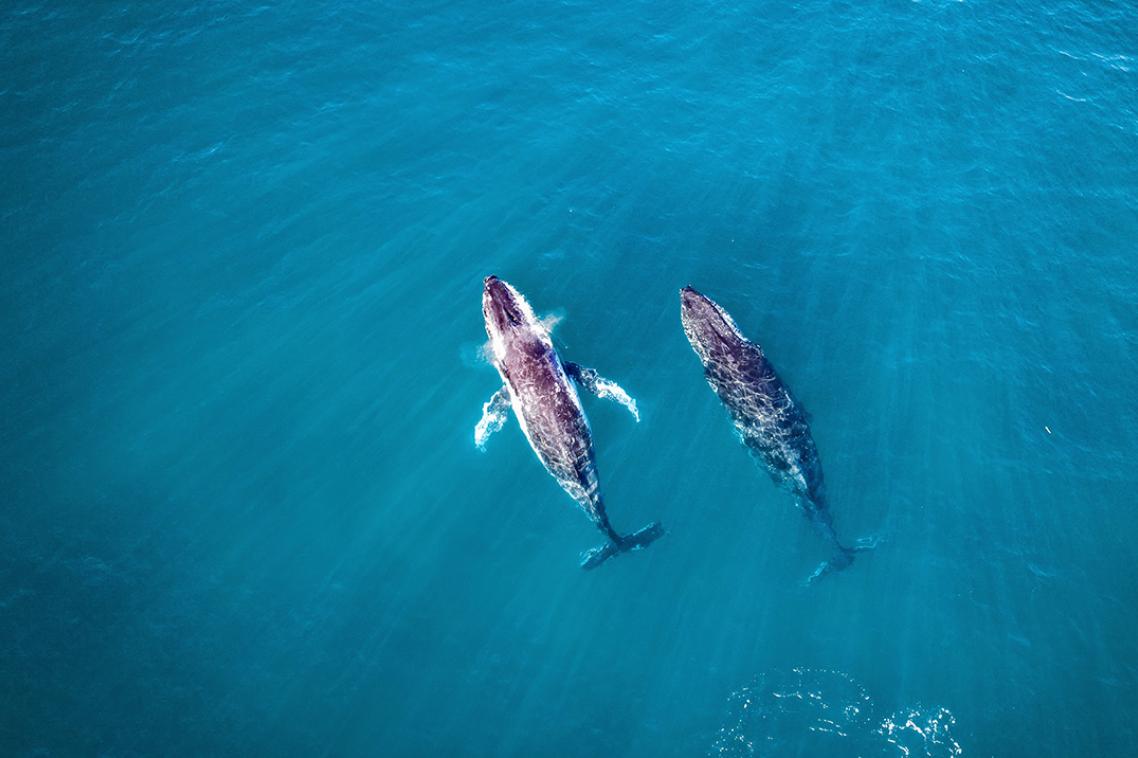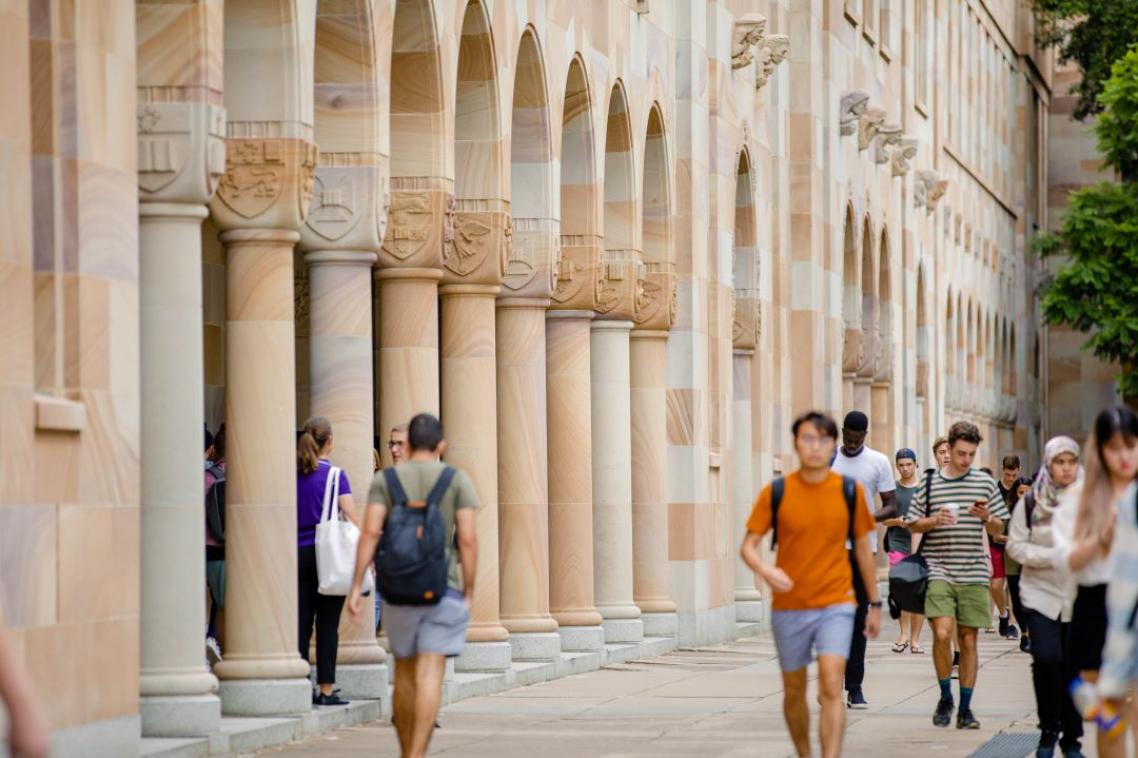Rapidly warming ocean a threat to Hawaiian coral reefs

A team of marine biologists from The University of Queensland has witnessed first-hand the potentially damaging effects of rapidly rising ocean temperatures on coral reefs in Hawaii.
High-resolution 360-degree images of affected corals have been captured by the biologists as part of their work with the XL Catlin Seaview Survey in the Hawaiian islands.
Coral bleaching and premature death is the most common effect of rising sea temperatures.
The phenomenon was observed last year when Hawaii recorded its first-ever mass bleaching event due to an unusually warm body of water in the eastern Pacific, known in scientific circles as ‘the blob’.
UQ Global Change Institute Director and survey chief scientist Professor Ove Hoegh-Guldberg said the combination of a strengthening El Nino and the hottest July on record meant the outlook for coral in the region was bleak.
“The coral bleaching we are uncovering in Hawaii is just the tip of the iceberg in terms of what we expect to unfold over the next few weeks,” Professor Hoegh-Guldberg said.
“Ocean heat has not fully dissipated since last year’s bleaching event, adding stress to corals that haven’t fully recovered and which may not be strong enough to survive another bleaching event.
“The timing of this expedition is crucial as it offers the chance to gather important baseline information on coral reefs ahead of these very warm conditions expected over the next month or so.”

The team will revisit Hawaii later in the year to determine which reefs have survived and which have disappeared.
Expedition leader Dr Manuel Gonzalez-Rivero said this information would be valuable for UQ scientists to help understand how rising sea temperatures could compromise the integrity of these reef systems.
“Our collaborative efforts with the United States’ National Oceanic and Atmospheric Administration (NOAA) and the University of Hawaii also enables our scientific analysis to inform management actions towards protecting these precious ecosystems,” he said.
The COP21 meeting in Paris in December will draw world leaders together to decide if they will commit to significant action on climate change.
Professor Hoegh-Guldberg said the outcome of that meeting could not be over-stated.
“Strong action on fossil fuel emissions and deforestation has potential to save coral reefs and many other important ecosystems,” he said.
Media: Rachael Hazell, +61 (0) 415 814 529, r.hazell@uq.edu.au
Related articles

Decades of surveys show whale migration shift

$1.85 million boost for UQ research projects
Media contact
UQ Communications
communications@uq.edu.au
+61 429 056 139
